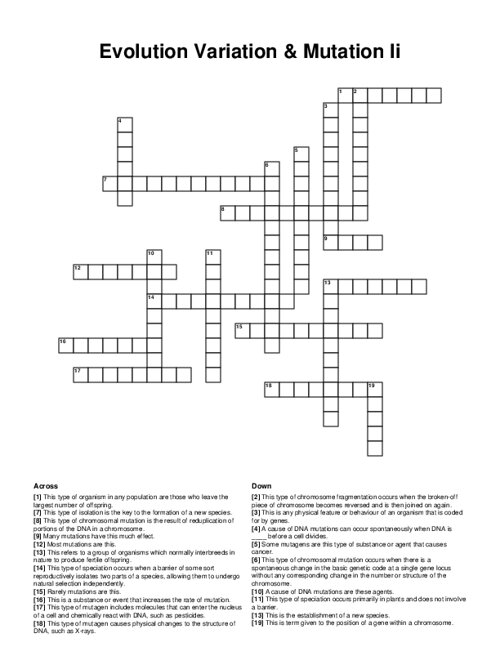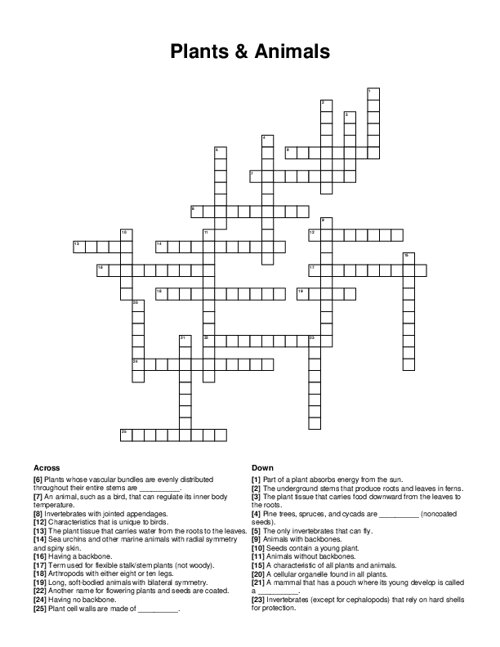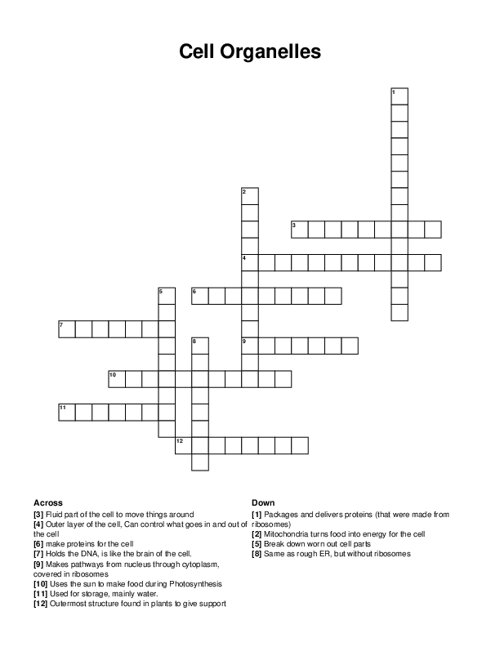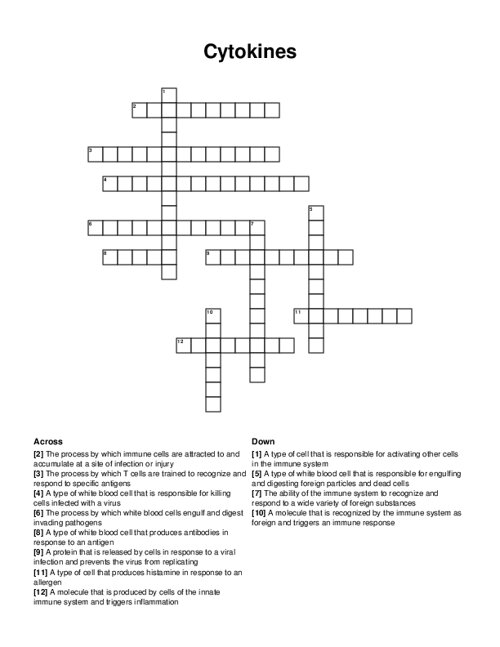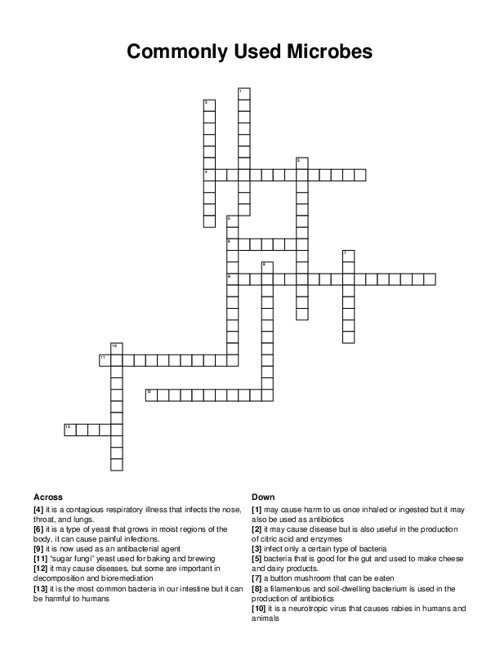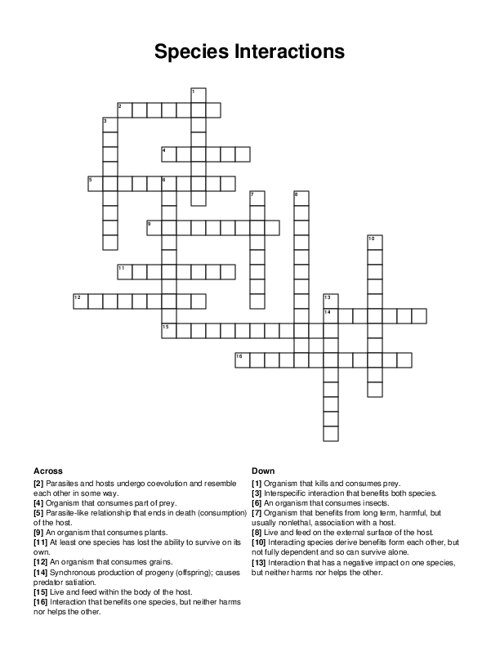Evolution Variation & Mutation Ii Crossword Puzzle
Download and print this Evolution Variation & Mutation Ii crossword puzzle.
Related puzzles:
QUESTIONS LIST:
- inversion : this type of chromosome fragmentation occurs when the broken-off piece of chromosome becomes reversed and is then joined on again.
- repetition : this type of chromosomal mutation is the result of reduplication of portions of the dna in a chromosome.
- gene mutations : this type of chromosomal mutation occurs when there is a spontaneous change in the basic genetic code at a single gene locus without any corresponding change in the number or structure of the chromosome.
- locus : this is term given to the position of a gene within a chromosome.
- copied : a cause of dna mutations can occur spontaneously when dna is _ before a cell divides.
- mutagenic : a cause of dna mutations are these agents.
- mutagen : this is a substance or event that increases the rate of mutation.
- physical : this type of mutagen causes physical changes to the structure of dna, such as x-rays.
- chemical : this type of mutagen includes molecules that can enter the nucleus of a cell and chemically react with dna, such as pesticides.
- carcinogen : some mutagens are this type of substance or agent that causes cancer.
- harmful : most mutations are this.
- none : many mutations have this much effect.
- beneficial : rarely mutations are this.
- fittest : this type of organism in any population are those who leave the largest number of offspring.
- adaptation : this is any physical feature or behaviour of an organism that is coded for by genes.
- species : this refers to a group of organisms which normally interbreeds in nature to produce fertile offspring.
- speciation : this is the establishment of a new species.
- reproductive : this type of isolation is the key to the formation of a new species.
- allopatric : this type of speciation occurs when a barrier of some sort reproductively isolates two parts of a species, allowing them to undergo natural selection independently.
- sympatric : this type of speciation occurs primarily in plants and does not involve a barrier.
